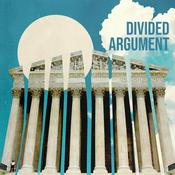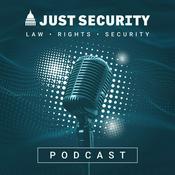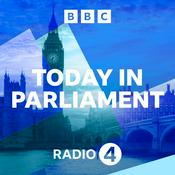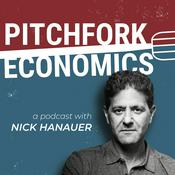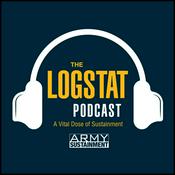Verfügbare Folgen
5 von 109
- The law under firePolitically motivated attacks on the legal profession in the UK have led to barristers, solicitors, advocates and judges being subjected to violence, death threats and rape threats. Some have faced threats to their family members. This is according to the The Bar Council of England and Wales, the Law Society of England and Wales, the Law Society of Scotland, the Faculty of Advocates, the Bar of Northern Ireland and the Law Society of Northern Ireland. These organisations represent a quarter of a million lawyers across the UK, and they have come together to warn about an increasing climate of hostility against legal professionals. They say that law firms have been targeted by protesters, and they point out that lawyers are not their clients. So how bad has the situation become, and is it threatening justice or even democracy?Also on the programme: The Scottish Parliament has passed the Land Reform (Scotland) Bill after 3 days of debates and almost 400 amendments lodged - so why is the bill so controversial? And using a dodgy "jailbroken-Firestick" to watch illegally-streamed TV may seem like a victimless crime - but is it? Presenter: Dr Joelle Grogan Producers: Ravi Naik and Charlotte Rowles Editor: Tom BigwoodContributors: Charlie Sherrard KC, criminal barrister with 2BR Chambers Mark Evans, President of the Law Society James Cook, BBC Scotland Editor Éamon Chawke, a solicitor who specialises in intellectual property law at Briffa legal--------27:36
- The court delays crisisWhen the Labour government came to power in 2024, it faced a crisis in the criminal courts, with ever-longer delays and a growing backlog of cases. The Ministry of Justice's budget is now one third higher in real terms than in 2019, but according to the latest figures, crown court cases that are yet to be heard reached a record high of 78,329. In October, the Justice Secretary David Lammy promised extra funding to increase the number of days that English and Welsh courts will sit next year. But is throwing money at the problem enough? How can the courts service be improved, and should jury trials be limited to help clear the backlog?Also in the programme: Protests in support of the banned group Palestine Action could result in trials for as many as 2100 people - so how do courts deal with a sudden influx of cases? And are UK laws fair to football fans? Presenter: Dr Joelle Grogan Editor: Tom Bigwood Producers: Ravi Naik and Charlotte RowlesContributors: Claire Waxman, Victims Commissioner designate, Riel Karmy-Jones KC, Chair of the Criminal Bar Association of England and Wales, Dr Steven Cammiss, Associate Professor in Law at the University of Birmingham, Professor Geoff Pearson, Professor of Law, University of Manchester.--------27:35
- Immigration and the law - who stays? Who goes?Immigration has dominated headlines for months, but what UK laws cover this most emotive of issues? When someone arrives here, what are the legal routes they have to take if they want to stay in the UK? What's the legal difference between an asylum seeker and a refugee? What does "indefinite leave to remain" mean? And what's the difference between being deported, being removed and being extradited? How do immigration hearings work? Are our immigration laws fit for purpose, and do they enable us to remove people when required? Also on the programme: How will the government's digital ID plans help curb illegal immigration? and wigs in court; as the bar council updates dress advice for its members, we ask two barristers if wigs have had their day. Presenter: Dr Joelle Grogan Editor: Tom Bigwood Producers: Ravi Naik and Charlotte RowlesContributors Madeleine Sumption, Director of the Migration Observatory at the University of Oxford Paul Gulbenkian, solicitor at OTS solicitors and former immigration Judge Morgan Wild, Chief Policy Adviser, Labour Together Jennifer Devans-Tamakloe, barrister at 23 Essex Street chambers Benet Brandreth KC, barrister at 11 South Square chambers--------28:29
- How can avoidable deaths be prevented?The phrase “State related deaths” might mean little to the average person, but it's an umbrella term referring to a death in custody or a mental health setting. It also applies to situations when people have taken their own lives while in the armed forces or even to disasters like Grenfell or Hillsborough. What all these have in common is that they are followed by inquests or public inquiries, where investigators or coroners try to work out what caused the deaths. Public inquiries are set up to draw conclusions and release their findings, and coroners are required to write a "Prevention of Future Deaths" report when there are lessons to be learned. Hundreds of these PFD reports are released in England and Wales each year - yet there is no system in place to ensure preventative changes are made. In Scotland, the equivalent is a Fatal Accident Inquiry. It's held by a procurator fiscal - and not a coroner - in front of a sheriff, and has a wider remit than an inquest. It too, can flag up systemic failures that led to a death, and precautions that should be made in future. So should the UK have a body that ensures these warnings are heeded?Also on the programme: The government has welcomed Law Commission reforms to Wills - which includes new protections against so-called "predatory marriages". And the Supreme Court case which could change the rules for all divorces in England and Wales. Presenter: Joelle Grogan Producers: Ravi Naik and Charlotte Rowles Editor: Tara McDermottContributors: Deborah Coles, Director of the charity Inquest Kate Stone, barrister at Garden Court North chambers Alexander Learmonth KC, barrister at New Square chambers Tracey Moloney, Moloney Family solicitors--------27:49
- Should killers be forced to attend sentencing hearings?The Victims and Courts Bill is progressing through Parliament, and will force convicted criminals to attend their sentencing hearings. If criminals convicted of the most serious offences in England or Wales refuse to attend, or are disruptive in court, they will face an extra two years in prison. There are other sanctions too, including missing out on family visits.‘Reasonable force’ can also be used to get criminals to attend. The families of three women killed in London - Sabina Nessa, Jan Mustafa and Zara Aleena - have been campaigning for a new law. In each case, the men who murdered their loved ones refused to come to their sentencing hearings. Their families are not alone; the mother of 9 year old Olivia Pratt-Korbel, who was fatally shot in August 2022, has also been calling for a change in the law. The man who murdered her daughter also refused to come to court to be sentenced. But will the changes improve the court system for the families of victims? Also on the programme: The first purely-AI legal service has been given the go ahead in England and Wales - what does it mean for the UK legal sector? And who gets the dog? Why all couples might want to consider a "pet-nup" in case they split up.Presenter: Joelle Grogan Producers: Ravi Naik and Charlotte Rowles Editor Tara McDermott Contributors Charlie Sherrard KC, criminal justice barrister and judge Claire Waxman, Victim's Commissioner for London Dr Giulia Gentile, Department of Law, University of Essex and expert on AI and digital regulation Samantha Woodham, barrister and co-founder of The Divorce Surgery.--------28:28
Weitere Regierung Podcasts
Trending Regierung Podcasts
Über The Law Show
Weekly conversation that will give you an in-depth understanding of the law stories making news and the legal decisions that could have a bearing on everyone in the UK. Whether it's unpicking a landmark legal ruling, explaining how laws are made or seeking clarity for you on a legal issue, The Law Show will be your guide.
Podcast-WebsiteHöre The Law Show, PaxEuropeana und viele andere Podcasts aus aller Welt mit der radio.at-App
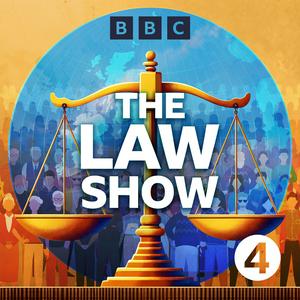
Hol dir die kostenlose radio.at App
- Sender und Podcasts favorisieren
- Streamen via Wifi oder Bluetooth
- Unterstützt Carplay & Android Auto
- viele weitere App Funktionen
Hol dir die kostenlose radio.at App
- Sender und Podcasts favorisieren
- Streamen via Wifi oder Bluetooth
- Unterstützt Carplay & Android Auto
- viele weitere App Funktionen


The Law Show
Code scannen,
App laden,
loshören.
App laden,
loshören.



